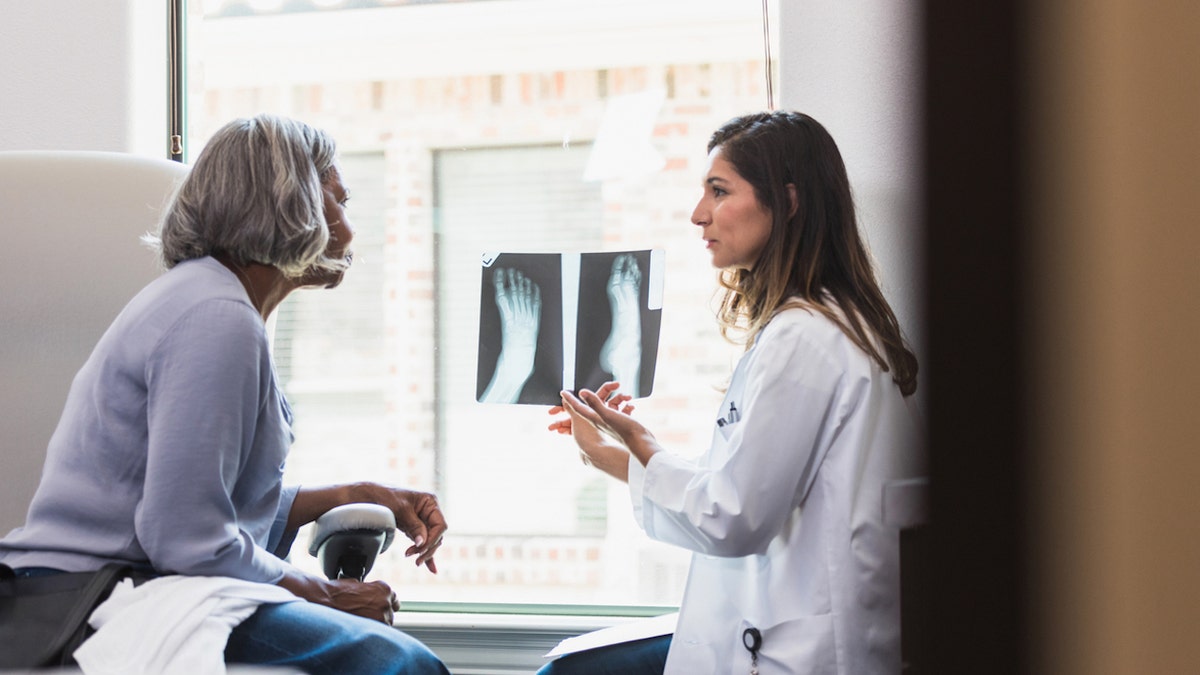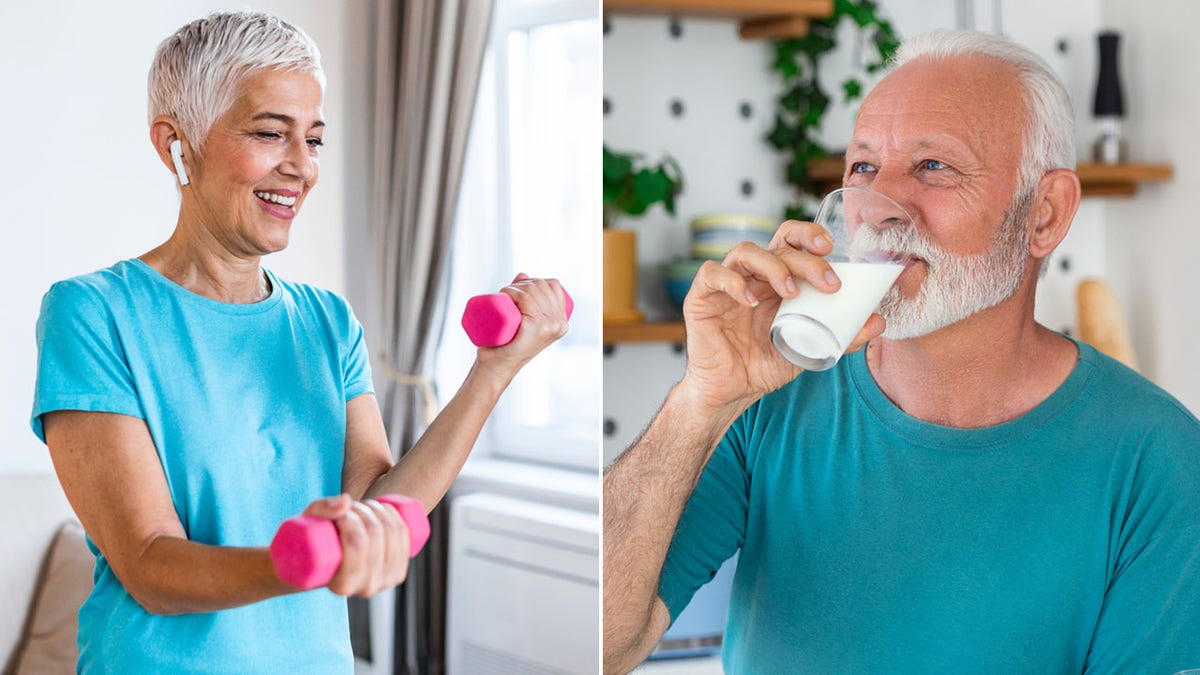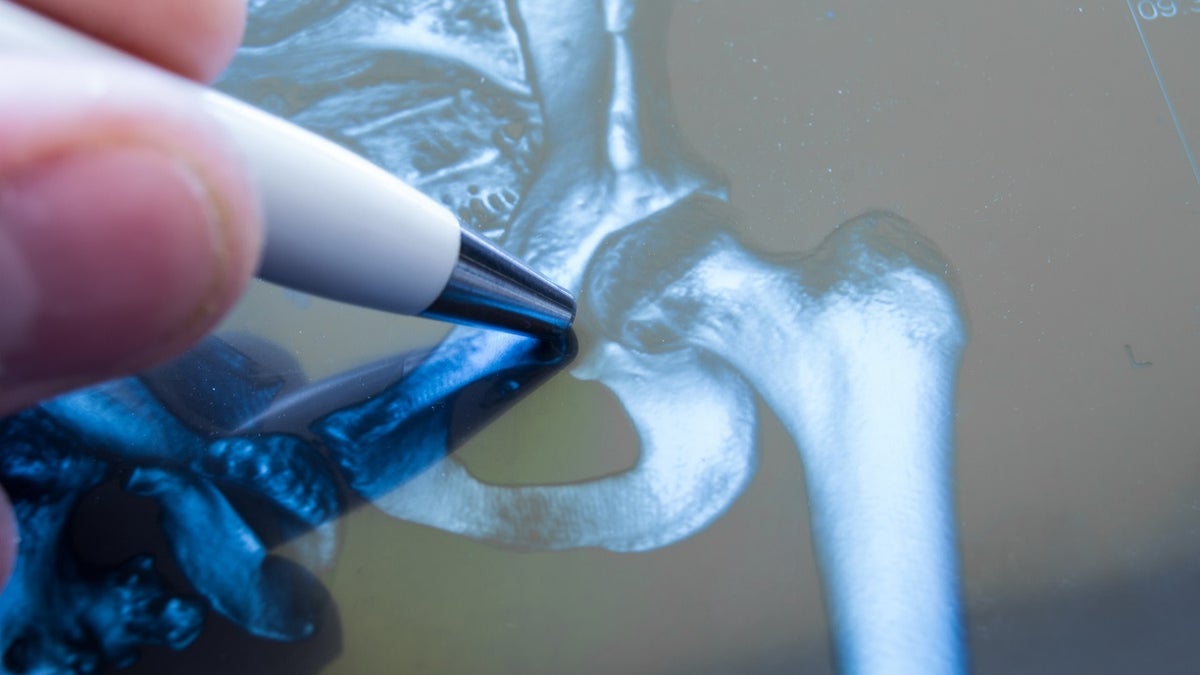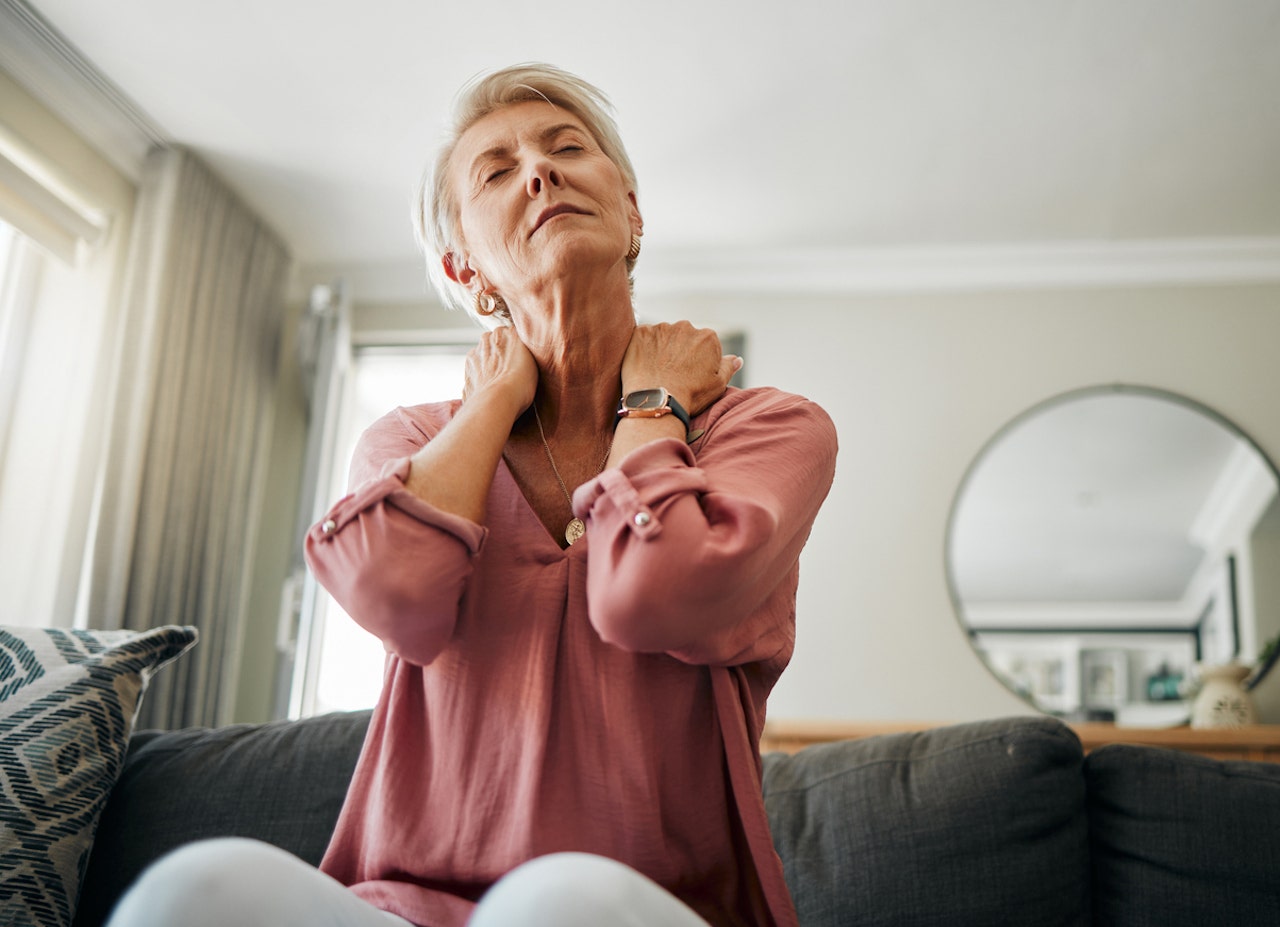A new drug could potentially alleviate two of the most troublesome effects of menopause.
The drug, called Pool 7, Compound 3 (P7C3), could help reduce bone loss and weight gain in postmenopausal women, according to researchers at the University of Central Florida (UCF).
The drug is also being studied as a therapy for Alzheimer’s, Parkinson’s and other neurological diseases.
IS IT MENOPAUSE? 6 HIDDEN SYMPTOMS WOMEN SHOULD KNOW ABOUT NOW
“Current drugs given to prevent post-menopausal bone loss target specific cells or proteins,” lead researcher Melanie Coathup, a UCF biomedical engineer, told Fox News Digital.
“They therefore tend to cause problems after long-term use, or through secondary complications to other unrelated tissues in the body.”
Many women are living with menopause-associated medical challenges that leave them “at a loss” in terms of sustaining and maintaining good health, according to the study’s lead researcher. (iStock)
Results of the study were published in the journal Advanced Science.
Until now, there has not been a safe, long-term treatment for bone loss in women, the researchers claimed in the UCF press release.
Many women are living with menopause-associated medical challenges that leave them “at a loss” as to how to sustain and maintain good health, according to Coathup.
REALITY STAR SPEAKS OUT ABOUT THE MENOPAUSE STIGMA
The researcher said she is often “inundated” with questions from older women who are afraid of breaking a bone and are “desperate for help.”
“There is a significant gap in ways of medically supporting women following menopause — and P7C3 may give hope that a new alternative is on the horizon,” she said.

The new drug was shown to prevent bone loss and maintain a healthy volume of bone post-menopause. (iStock)
In mouse studies, the new drug was shown to prevent bone loss and maintain a healthy volume of bone.
“The bone remained strong — it was more difficult to break with a machine — despite our models having low to no estrogen,” Coathup said in the release.
What is osteoporosis?
Osteoporosis is a condition that causes weak, brittle bones. It is typically caused by overactive cells that absorb too much bone.
In the later stages of the disease, symptoms can include back pain, stooped posture and bone breakage, according to Mayo Clinic.
NATURAL, NON-HORMONAL SOLUTIONS FOR MENOPAUSE SYMPTOMS
More than 200 million people have osteoporosis, including over 70% of people older than age 80, per the National Institutes of Health (NIH).
Females are more susceptible than males.
P7C3 works by inhibiting the activity of bone-absorbing cells.
“There is a significant gap in ways of medically supporting women following menopause.”
The drug has also been found to reduce inflammation and create new, healthy bone tissue.
“Our metabolism declines with age and plays an important role in almost every tissue in the body,” Coathup told Fox News Digital.
“Therefore, a key takeaway is that P7C3 may not only cause fewer unwanted side effects, but may also improve the health of many tissues in addition to bone and fat, potentially including our muscles, memory and cognition.”

Experts recommend that menopausal women build muscle by doing load-bearing exercises. (iStock)
The drug was also found to prevent post-menopausal weight gain by increasing beneficial bacteria in the gut microbiome and boosting fat metabolism.
“Massive whole-body weight gain is common in both humans and rats in postmenopausal osteoporosis and low estrogen,” Coathup noted.
“The finding that P7C3 reduced overall fat deposits and body weight was highly unexpected,” she also said.
‘Promising’ early results
Dr. Kathleen Jordan, chief medical officer of Midi Health in California, was not involved in the study but offered her reaction to what she called a “commendable” study.
“It is exciting that bone health is getting some much-needed research, especially in women where estrogen depletion in menopause makes them extra vulnerable to poor bone health,” she told Fox News Digital.
TO FIGHT BONE LOSS, FDA APPROVES VIBRATION BELT SHOWN TO HELP POST-MENOPAUSAL WOMEN
Osteoporosis can lead to “fragility fractures,” Jordan warned — referring to “fractures that can result from the minor bumps occurring in daily life and [that] are painful and debilitating.”
While P7C3 could set the stage for more therapies for women, Jordan noted that the drug is still “very early in development and not ready for broad clinical use.”

Strategies to help prevent osteoporosis include doing load-bearing exercises and consuming a diet high in calcium and vitamin D, experts say. (iStock)
“I look forward to the results of future safety and efficacy studies,” she added.
Coathup agreed that much more research is needed, but said the early signs are “very positive.”
“I hope our research brings women hope, albeit cautious hope,” she said. “The results have been incredibly, and surprisingly, promising.”
What women can do now
The UFC researchers also plan to investigate whether the drug can help restore bone mass in women who already have osteoporosis.
In the meantime, Coathup encourages women experiencing menopause to eat a diet high in calcium and Vitamin D, to talk with their doctors as needed, and to build muscle by doing load-bearing exercises, such as walking, jogging, dancing or playing tennis.
CLICK HERE TO SIGN UP FOR OUR HEALTH NEWSLETTER
“Following that advice will help women lead healthier lives through menopause and have a greater chance of avoiding bone loss and weight gain,” she said.
Jordan disagreed with the researchers’ claims that there are no effective treatments for bone loss, saying that women should be able to access the solutions that are currently available.

Osteoporosis can lead to “fragility fractures,” a doctor warned — “which are fractures that can result from the minor bumps occurring in daily life and are painful and debilitating.” (iStock)
“Estrogen replacement has long been known to support women’s bone health, reduce the incidence of osteopenia and osteoporosis, and prevent fractures,” she said.
(The U.S. Preventive Services Task Force, or USPSTF, “recommends against the use of combined estrogen and progestin for the primary prevention of chronic conditions in postmenopausal persons,” according to its website.)
CLICK HERE TO GET THE FOX NEWS APP
In addition to weight-bearing exercise and an optimized diet, bone density screenings are also important, Jordan said — particularly for women who have certain risk factors.
Those factors include having a mother with fractures or bone health struggles, engaging in significant alcohol intake, having diabetes, or regularly using prednisone or other steroids.
For more Health articles, visit www.foxnews.com/health.





